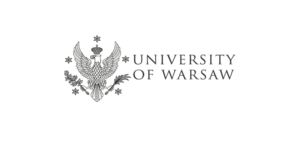University of Warsaw
The University of Warsaw was founded in 1816. In the late twenties of the 20th century the University was the largest Polish university with 250 professors and associate professors and 10,000 students. Today it is the largest university in Poland and one of the top universities in Poland. More than 50,000 students from Poland and abroad are educated in its organizational structures.
About the University of Warsaw
In 2014 the University not only won the national ranking of universities, but also has shown very good results in international rankings. Taking into account the total number of research universities that reaches 20 thousand the University of Warsaw is among the top two per cent of the world’s best universities and plays significant role in the domestic and international educational and research landscape.
The Faculty of “Artes Liberales”
The University consists of 21 faculties and a vast number of interfaculty and interdisciplinary research centres which gather various Polish and foreign scholars. The Faculty of “Artes Liberales” is the second youngest faculty at the University of Warsaw (established in 2012) and functions as a home to interdisciplinary and diverse community of scholars and practitioners coming from areas such as literature, history, theatre, visual arts, digital humanities, theology, anthropology, biology and cognitive
sciences.
The Faculty replaced the former Institute for Interdisciplinary Studies “Artes Liberales” and its origins date back to 1991 when the Centre for Studies on the Classical Tradition in Poland and EastCentral Europe (OBTA) was created.
Interdisciplinary Studies in the Humanities
Over the nearly three decades of its existence this community developed into a fully-fledged centre for interdisciplinary studies in the humanities and this multi-faceted approach is applied also in the field of early modern and religious studies, represented at the Faculty by the Centre for the Study of the Reformation and Intellectual Culture in Early Modern Europe or the Ioannes Dantiscus Correspondence Project, whose members work on such topics as role of religion in early modern Republic of Letters, relationships between religion and diplomacy, relations between theology and other disciplines of knowledge, book history and religious texts.
Responsibilities
- Involved in work packages 1, 2, 3, 4, 5, 6
